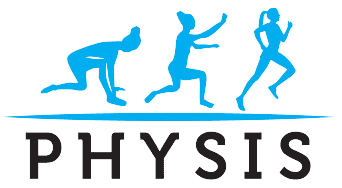Physical Therapy is an allied medical practice provided by physical therapists to promote, maintain and restore health. It involves intervention/rehabilitation, patient education, disease/injury prevention and health promotion. Your Physical Therapist will perform a detailed evaluation of muscular/skeletal systems, assessing motion, strength, joint mobility, sensation, reflexes and evaluate your functional ability to complete desired tasks. Based on the findings, your physical therapist will create a treatment plan, unique to you, consisting of specific exercises. Your physical therapist will evaluate your performance on each exercise, every session and then set up progressions raising the level of difficulty for continuous progress towards your goals.
The exercises are designed to facilitate healing and challenge tissues. These changes are occurring at the most basic, which is the cellular level, in your body. This leads to complete recovery rather than masking or temporary relief with other alternatives.
Numerous published studies show the efficacy of physical therapy in reducing pain, improving motion, strength, restoring function compared to other treatment options. It can help if you have:
- new pain or have been dealing with chronic pain
- recent or old injuries
- limited motion
- limited strength
- lost ability to complete a specific activity
- been dealing with limitations after surgery
- want to get stronger for a surgery
- a spine or nerve injury
- been dealing with developmental disability
- balance issues
- had falls
- just want to learn ergonomics for exercising, sitting or lifting
And more…
Physical Therapy is also categorized with specialties where your physical therapist can be specialized in orthopedics, pediatrics, geriatrics, cardiac and pulmonary, neurology, oncology, sports, women’s health, clinical electrophysiology and wound management.

Essentially, you are working with highly trained movement experts who are knowledgeable in identifying the source of your limitation, treating it and referring you to the right medical practitioner if it is outside the scope of their practice. If you have heart problems, you are comfortable seeing a cardiologist then why not trust the experts trained in treating issues originating from muscles and bones.
Physical Therapy is covered by insurance. You can call the practice and confirm if they are in-network, out-of-network or cash pay practice. Medicare also covers physical therapy services.
At your first appointment make sure you carry your insurance card, an ID and any other information/test results you may have pertaining to your complaint. You will also be filling out some forms consisting of medical history and demographic information. You want to wear loose comfortable clothing as your therapist will need access to evaluate the area of your complaint. Once your session is complete your therapist will provide you with some exercises to complete at home. Make sure you are diligent with them as they are provided to promote healing.
Call us on 212-706-7480 or email us on info@physisrehab.com for a complimentary phone consultation or even if you just want to know how we can help.



Comments are closed